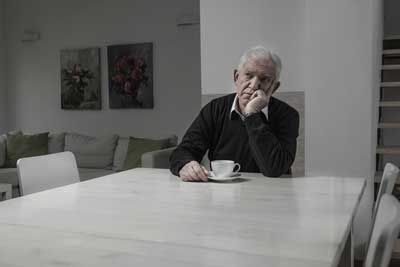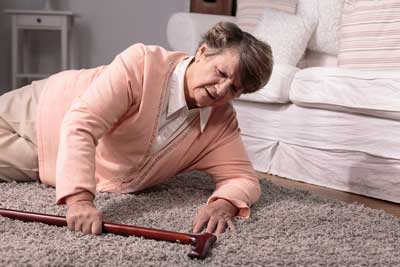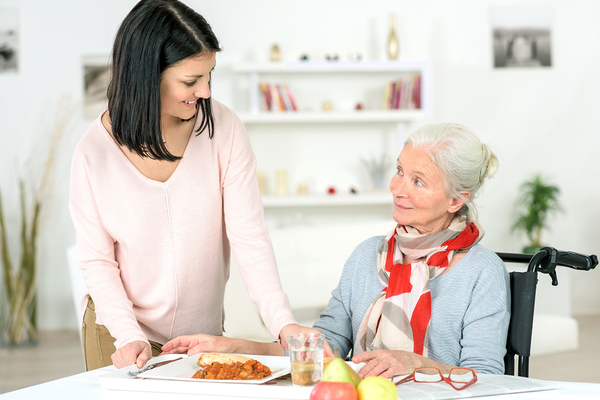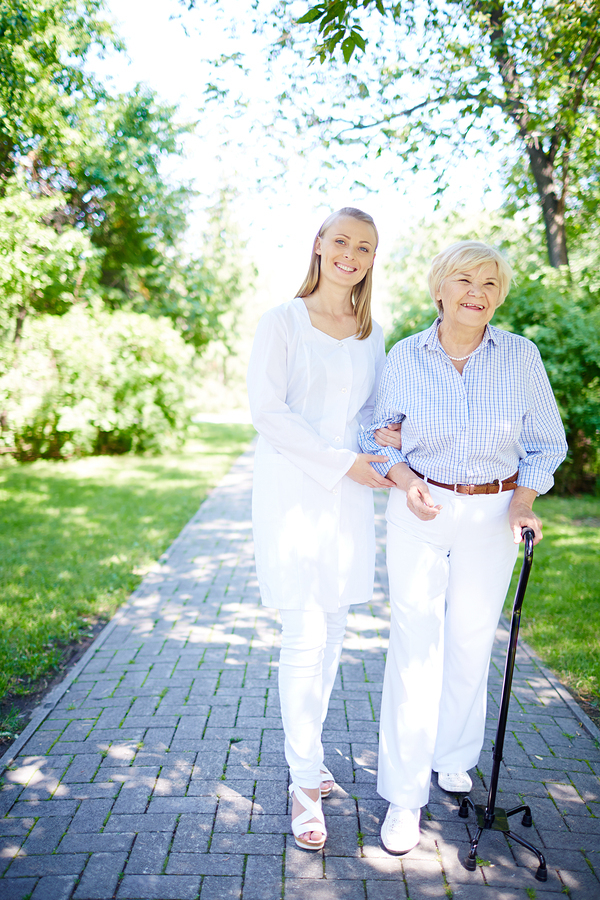First Choice
Recent Posts
Aging Population and the Increased Need for In-Home Care
[fa icon="calendar'] Aug 24, 2016 4:00:00 PM / by First Choice posted in In-Home Health Care, Caregiver
What will this mean for in-home care? The report notes: "The number of older single persons living alone will climb, implying a significant increase in the need for in-home healthcare and supportive services."
Expert Interview Series: Amie Clark of The Senior List on Long-Term Care for Seniors
[fa icon="calendar'] Aug 16, 2016 9:00:00 AM / by First Choice posted in Senior Care, Caregiver, Expert Interview
Amie Clark, co-founder and frequent contributor to TheSeniorList.com, has had the privledge of working with seniors throughout her social work career in the areas of senior housing and care coordination.
Here she discusses some of her favorite things about TheSeniorList.com and shares ideas on navigating the process of finding long-term care for seniors. Read on:
Tell us about The Senior List. What spurred you to create the site?
The Senior List was created to help families and caregivers navigate the issues and challenges of senior care. We explore everything from Alzheimer's/dementia, medical alert systems, tech for the home, caregiving tips, senior discounts, senior housing and many other boomer/senior related topics.
5 Tricks Senior Care Providers Use to Avoid Stress & Stay Positive
[fa icon="calendar'] Aug 8, 2016 2:29:32 PM / by First Choice posted in In-Home Health Care, Senior Care, Caregiver, Professional Caregiver
In some cases, professional caregivers may also encounter significant resistance from a patient who is having trouble adjusting to his or her changed circumstances. Occasionally, this resistance manifests itself in the form of anger or irritability displayed inappropriately toward the caregiver. This, too, can be stressful.
Help with Senior Care Means You Can Have More Quality Time with Your Loved One
[fa icon="calendar'] Jul 29, 2016 10:00:00 AM / by First Choice posted in In-Home Health Care, Senior Care, Questions
Becoming the primary caregiver for a loved one whose physical or mental health is declining is more than just a challenging job. It is a series of challenging jobs.
You may find yourself on any given day handling transportation to and from medical appointments, helping your parent keep track of a complicated drug regimen, cleaning your parent's home, preparing meals for your loved one, and helping him or her with other activities of daily life. All of these are necessary activities, and are added to the responsibilities you already have for your own household.
In-Home Senior Care Can Help Your Loved One Avoid Social Isolation
[fa icon="calendar'] Jul 22, 2016 8:30:00 AM / by First Choice posted in Aging, Senior Care, Keeping Active
Social isolation, defined loosely as the absence of social interactions, contacts, and relationships with friends and family, with neighbors, or with society at large, is a serious issue for many older adults.
Andrew Steptoe, lead researcher of a study on the effects of social isolation on health outcomes among the elderly, states: "Social contact is a fundamental aspect of human existence. The scientific evidence is that being socially isolated is probably bad for your health, and may lead to the development of serious illness and a reduced life span."
The study found that the most socially isolated subjects had a 26 percent greater risk of dying than their socially connected counterparts, even when sex, age, and other factors commonly linked to survival were taken into account.
Warning Signs That Your Loved One Could Benefit from Home Health Care
[fa icon="calendar'] Jul 13, 2016 9:30:00 AM / by First Choice posted in In-Home Health Care, Senior Care, Caregiver
Life's transitional moments have a way of sneaking up on you. While your loved one may seem perfectly fine living independently one moment, in a short time, that can change. For many family caregivers, the difficulty is in seeing exactly when that change occurs.
Unless there is a particular precipitating event, like a debilitating illness or injury, the changes that occur are often so subtle that they go undetected for a time by even the most caring of family members. Added to that, many seniors try to mask the difficulties they are having performing activities of daily living on their own in an attempt to spare their caregivers from anxiety.
Here, then, are some signs that can help you detect when it is time to find support for your loved one with home health care services:
Choosing the Home Health Care Agency That's Right for Your Career
[fa icon="calendar'] Jul 5, 2016 7:30:00 PM / by First Choice posted in In-Home Health Care, Caregiver
If you are considering a career in-home health care, there are a number of factors you must weigh when choosing a quality home health agency with which to work. The reality is that not all home care agencies are created equal, and some offer substantially better pay, benefits, and tools to help you thrive as a home care worker.
With the goal of finding an agency that is a good fit for you, here are some important things to consider:
5 Things You Need to Know About Choosing an In-Home Care Provider
[fa icon="calendar'] Jun 29, 2016 4:00:00 PM / by First Choice posted in In-Home Health Care, Aging, Caregiver
Rooted in Place
This sentiment makes sense. The concept of moving into a different community and a new living arrangement can create anxiety at any age. However, especially in the case of seniors, pulling up roots and making such a change is often an overwhelming prospect.
For many seniors, the homes in which they live are the homes where they raised families, where they invested their time and resources, and where they developed close friendships with neighbors. Leaving all of that behind in favor of a new, sometimes radically different environment holds little appeal.
Additionally, from a purely physical perspective, the thought of moving to a new home is an exhausting one, as seniors consider how to dispose of a lifetime's accumulation of clutter to live comfortably in the smaller space common in assisted living communities.
Retirement Planning and Home Healthcare Options
[fa icon="calendar'] Jun 23, 2016 6:30:00 PM / by First Choice posted in In-Home Health Care, Aging, Caregiver
Home is where the heart is. At least, that appears to be the case for Baby Boomers now entering their retirement years. Unlike older generations, Baby Boomers expect to live independently much longer than their predecessors, and intend to use all tools at their disposal to do so.
USA Today's "Retirees Embrace Ways to Stay Put, Age in Place" notes that the vast majority of people aged 50 or older want to stay in their homes for as long as possible. The article observes: "They want to age in place, continuing to live in their home or at least in the same community. And they're not afraid to remodel and try new technologies to make that happen."
Some of the technologies available to help seniors age in place are:
- smart homes
- personal emergency response systems
- telemedicine
- health monitoring devices
A Home Healthcare Worker Can Help Your Loved One Live a More Active Lifestyle
[fa icon="calendar'] Jun 15, 2016 3:30:00 PM / by First Choice posted in In-Home Health Care, Caregiver, Keeping Active
The process of aging takes an undeniable toll on a body. Does that mean, however, that an active lifestyle is no longer an option for your loved one?
The answer to that question is a definitive "no." In reality, leading an active lifestyle can be more important than ever as people age.
The Benefits of Exercise and an Active Lifestyle
HelpGuide.org's "Exercise and Fitness as You Age" observes: "Regular exercise can help boost energy, maintain your independence, and manage symptoms of illness or pain. Exercise can even reverse some of the symptoms of aging. And not only is exercise good for your body, it's also good for your mind, mood, and memory."
In addition to structured exercise like weight training or cardio, seniors can derive much benefit from simply maintaining an active lifestyle. Taking a walk in the park, gardening, and generally moving more are all ways to tap into the body's potential to heal and support itself both physically and mentally.










